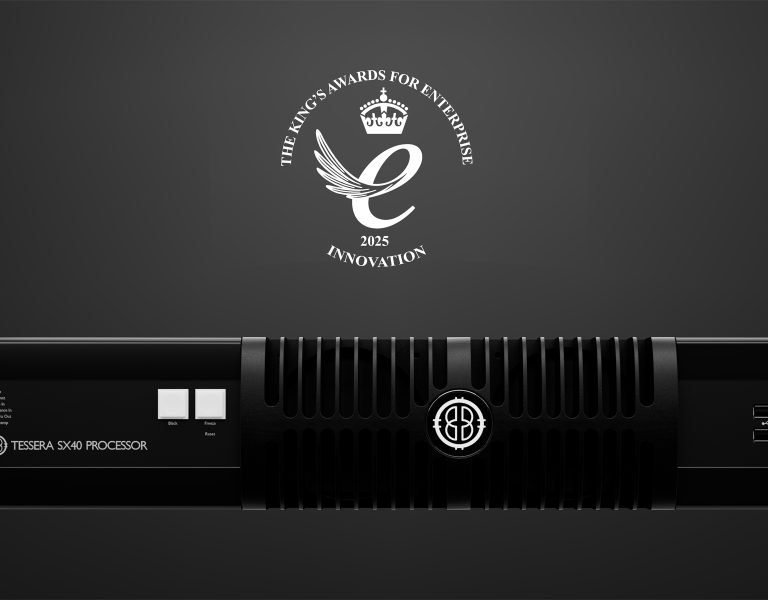
The Film and TV Charity has published its full assessment of the 2024 Looking Glass Survey. The report follows the earlier release of headline data that showed mental health in the industry has worsened.
The full report, available to download here, paints a bleak picture of the state of mental health and wellbeing among professionals working behind the scenes in the UK. However, a deeper dive into the data also shows that concerted efforts over the last five years to improve industry culture and conditions are starting to pay dividends.
As previously reported, from more than 4,300 responses to the survey:
- 64% are considering leaving the industry due to concerns about mental health, with 32% having taken firm steps to do so.
- 30% reported having thoughts of taking their own life in the past 12 months
- 30% often felt lonely, up from 24% in 2022 and way above a national average of 8%
- 63% said their work in the industry has a negative effect on their mental health
Targeted interventions yield positive results:
For the first time the 2024 Looking Glass Survey asked if respondents had accessed the Film and TV Charity’s Services. Across nearly all indicators there was a clear correlation between using the Charity’s services and better mental health outcomes. This was clearly seen among respondents who had used the Charity’s Whole Picture Toolkit, its free online resource to improve mental health on productions:
- Only 12% of respondents felt that the industry is a mentally healthy place to work. This number rose to 25% among respondents who had worked on a production using the Whole Picture Toolkit
- 35% described their mental health as ‘poor’ or ‘very poor’, up from 24% in 2022. This number dropped to 23% among those who had worked on productions using the Whole Picture Toolkit
Causes of Poor Mental Health in the Industry:
The report expands on earlier headlines by exploring the impact of macro-level challenges on mental health in the industry. It also revisits the underlying causes of the crisis, identified in the first Looking Glass Survey report in 2019 as working Conditions, workplace Culture, and the industry’s Capability to support its staff:
Conditions
Industry-wide uncertainty has exacerbated the mental health crisis for many, with the prolonged downturn in production contributing to increased levels of worklessness, the prevalence of financial worries and an overall sense of precarity. On a more positive note, there has been a significant decrease in the number of people working excessive hours.
Culture
Attitudes to those experiencing mental health issues have improved and the number of people experiencing bullying, harassment, or discrimination has declined, but the report notes there is still much more work to do. There is an increase in the number of industry professionals who feel undervalued, and more than half who experienced bullying did not report it. A third of respondents still cite fear of judgment from colleagues as a barrier to accessing support.
Capability
The positive impact of the Whole Picture Toolkit supports the efficacy of measures to improve capability. However, the report also shows that there is an urgent need for leadership to receive adequate training and guidance to support the wellbeing of others. Only a minority of freelance or permanent staff recall being offered support, guidance, or information about working practices. The most common barrier to seeking support with mental health was a fear of not being offered work if others knew about their problem.
A breakdown of the data pertaining to Conditions, Culture, and Capability is provided in the full report and its Executive Summary.
The report also shows that, while the average industry worker is at a heightened risk of poor mental health compared to the wider population, there is an even greater risk for certain groups within the industry. Freelancers, workers with a disability or long-term health condition, neurodivergent workers, LGBTQ+ workers, carers, people from the Black and Global Majority, women, and younger workers are even more susceptible to poor mental health and to issues linked to worklessness, bullying, harassment, and discrimination.
“The results of the 2024 Looking Glass Survey underline that the industry has to go much further to address urgent, persistent issues relating to mental health in our industry,” said Film and TV Charity CEO Marcus Ryder. “We are at risk of seeing a potential exodus of skilled and experienced workers, from directors to scriptwriters, and from directors of photography to set designers – with 64% of survey respondents saying they were considering leaving the industry and 32% already having taken firm action to do so. It would be wrong to attach this risk solely to the mental health crisis the industry is facing, but there is no doubt it is a major contributory factor. At the same time, while the survey results paint a bleak picture, they also reveal that focused and targeted interventions work – as evidenced by the positive impact on mental health on productions that have worked with the Charity. We should also recognise that culture change takes time, and acknowledge that, for example with issues such as bullying, where the entire industry has recognised that there is a problem that needs to be addressed, we have seen the dial shift in a positive direction.”
Anyone working behind the scenes in film, TV, and cinema can access immediate, free, and confidential support through the Film and TV Support Line on 0800 054 0000, or via the Charity’s website.










